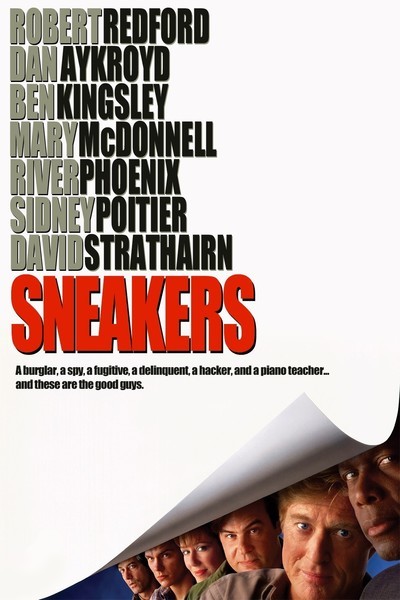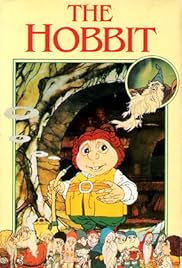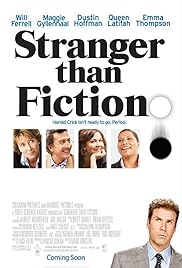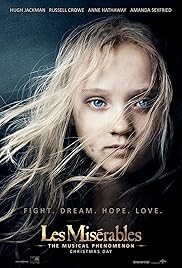Löwenherz
Starter
All right, let's get right to the main reason I lobbied to extend this little exercise into double overtime.
Back in the halcyon days of physical rentals from brick-and-mortar Blockbusters when I was still a kid, my parents would regularly pick up a couple movies for the weekend while I snagged myself a Nintendo game. Sometimes I watched their movie choice with them, but usually I sequestered myself away in my room with my gaming prize while they slogged through whatever boring grown-up stuff they'd dragged home.
My introduction to my next pick played out per the norm. I never watched this film with my parents, instead spending that time helping Mega Man overcome the evil Dr. Wily. But I left my room for a snack or something right as the credits rolled, and I distinctly remember hearing my dad say "Eh, pretty good. I don't need to see it again."
That really stuck with me. I remember being confused, a little saddened, hurt even, by the comment. Believe it or not, I actually felt sorry for whatever movie my dad was describing in such flippant terms. In my adolescent mind, things were either awesome or terrible, and only the terrible deserved to be forgotten. To hear my dad describe something as good enough to enjoy, but not good enough to remember struck a nerve.
I wanted to somehow rescue this film from the abyss of obscurity to which I knew my dad had just banished it. So when my parents left the house, but before they'd returned the rentals, I did what I had never done before and watched a film they rented without them.
And I liked it. A lot actually. It was fun and funny, had cool action, cool tech, cool shots, cool characters. I didn't fully understand everything going on, a lot of the more subtle humor and topical nuance went over my head, but I could follow along well enough. I made a conscious decision at that time to bestow this random movie my parents rented a place within my favorites list. Which is a bigger deal than it sounds: at the time my "favorite movie list" was essentially limited to Back to the Future, TMNT, and Point Break. A high honor indeed. But despite what my dad said, this movie deserved it.
As I grew up, my opinion softened a bit, but never below the sentiment of "you know what, I really do like that one." with a customary watch every now and again. Nearly 30 years later now, and the movie my dad callously cast off the island (and probably legitimately has no memory of) has been a mainstay on my expanded favorite movies list ever since.
Wildcard #1 is for ...
Setec Astronomy

Sneakers (1992)
It was a dead heat between this and Shakespeare in Love for my "S" pick, but I went with the latter to bolster up my rom-com options, and because overall I think Shakespeare ... is the more "complete" film experience. But it pained me to do it, leaving Sneakers alone at the alter yet again.
I've previously called it a "poor man's Ocean's Eleven," which while apt given the focus on the ensemble cast, and the consummate sleight-of-hand caper elements, doesn't nearly encapsulate what makes Sneakers significantly unique among cinematic shovelware.
One key to appreciating Sneakers is through embracing the zeitgeist in which it was crafted: namely the brief period in America immediately following the Cold War when the country collectively exalted to the heavens in a unified voice "We won! ... uh, now what?" Sneakers is a product of that surreal, hungover after-party morning stupor when the nation tried to find its shoes and put together a plan for breakfast.
There is the DNA of a "business as usual" by the numbers espionage thriller that could copy-paste the omnipresent Soviets as the clear and present danger - standard operating procedures for the preceding 40 years. But Sneakers is emblematic of a reality in which geopolitical affairs move faster than the Hollywood filmmaking industrial complex, and a script written in 1981 surprisingly isn't as topical a decade later.
The movie even makes reference to this with numerous, almost wistful mentions of the Russians, like a sullen teenager pining for a lost love. There's a point in the middle when the narrative starts to veer in that direction regardless, with body counts slowly rising, and Redford as Bishop going full Three Days of the Condor shouting "Who are you working for?!" at people in the shadows. But then Bishop gets back with his crew, and it's as though he remembers "Wait a minute, I'm not in that kind of movie" and we get back to the fun stuff.
Redford really is the heart and soul of the film, and the only reason it got off the ground in the first place. But there is not a weak point in the cast. Ackroyd is great as a flat affect conspiracy theorist. River Phoenix - in his last on screen role - fits the lovable scrappy tech kid. McDonnell walks the delicate balance of being the put-upon sardonic voice of reason, who still isn't a total wet blanket buzzkill, and relishes being the mutrue cool girl whose's still allowed in the "clubhouse." Strathairn as the blind hacker Whistler is a scene-stealer.
Of course, special mention must be made for Ben Kingsley, a sympathetic villain with the most ridiculous accent this side of Eddie Redmayne in Jupiter Ascending. But even more so, the great Sidney Poitier in his penultimate major motion picture role. Not only does he play the soberingly necessary part of the "only adult in the room" with sophisticated power and poise, but here's a shocker, he's also low-key hilarious. Now I had only ever known Poitier as a dramatic actor, with no idea he had any kind of comedic sense and timing. I didn't even know he had a few comedies in his repertoire until I went through his filmography and found a pair from the 70s. But Poitier puts on a great show of balancing dramatic intensity with charismatic, straight-chill comedy, so that he can do either from scene-to-scene, or even line-to-line, and seem completely within his character.
Beyond that, there's some slick early 90s tech shots that still seem futuristic within the film universe even if they're running on DOS. The script writing I find especially clever. At one point Bishop delivers the throw-away line "You know, I wanted to join the NSA, but they found out my parents were married" which is kind of a 1% joke anyway, but the scene lingers for a second without a cut away, staying long enough both for for the audience to get the joke AND for the other guy to enter the frame under the pretense of kicking the crap out of Bishop right when the audience figures out the insult.
It's also unintentionally funny in a Post-Patriot Act world, seeing a guy in a "dangers of tech and surveillance" movie, unironically smiling as he says "We're with the NSA ... We're the good guys." hoping to ease the mind of the hacker dude with the checkered past.
Too Many Secrets

Back in the halcyon days of physical rentals from brick-and-mortar Blockbusters when I was still a kid, my parents would regularly pick up a couple movies for the weekend while I snagged myself a Nintendo game. Sometimes I watched their movie choice with them, but usually I sequestered myself away in my room with my gaming prize while they slogged through whatever boring grown-up stuff they'd dragged home.
My introduction to my next pick played out per the norm. I never watched this film with my parents, instead spending that time helping Mega Man overcome the evil Dr. Wily. But I left my room for a snack or something right as the credits rolled, and I distinctly remember hearing my dad say "Eh, pretty good. I don't need to see it again."
That really stuck with me. I remember being confused, a little saddened, hurt even, by the comment. Believe it or not, I actually felt sorry for whatever movie my dad was describing in such flippant terms. In my adolescent mind, things were either awesome or terrible, and only the terrible deserved to be forgotten. To hear my dad describe something as good enough to enjoy, but not good enough to remember struck a nerve.
I wanted to somehow rescue this film from the abyss of obscurity to which I knew my dad had just banished it. So when my parents left the house, but before they'd returned the rentals, I did what I had never done before and watched a film they rented without them.
And I liked it. A lot actually. It was fun and funny, had cool action, cool tech, cool shots, cool characters. I didn't fully understand everything going on, a lot of the more subtle humor and topical nuance went over my head, but I could follow along well enough. I made a conscious decision at that time to bestow this random movie my parents rented a place within my favorites list. Which is a bigger deal than it sounds: at the time my "favorite movie list" was essentially limited to Back to the Future, TMNT, and Point Break. A high honor indeed. But despite what my dad said, this movie deserved it.
As I grew up, my opinion softened a bit, but never below the sentiment of "you know what, I really do like that one." with a customary watch every now and again. Nearly 30 years later now, and the movie my dad callously cast off the island (and probably legitimately has no memory of) has been a mainstay on my expanded favorite movies list ever since.
Wildcard #1 is for ...
Setec Astronomy

Sneakers (1992)
It was a dead heat between this and Shakespeare in Love for my "S" pick, but I went with the latter to bolster up my rom-com options, and because overall I think Shakespeare ... is the more "complete" film experience. But it pained me to do it, leaving Sneakers alone at the alter yet again.
I've previously called it a "poor man's Ocean's Eleven," which while apt given the focus on the ensemble cast, and the consummate sleight-of-hand caper elements, doesn't nearly encapsulate what makes Sneakers significantly unique among cinematic shovelware.
One key to appreciating Sneakers is through embracing the zeitgeist in which it was crafted: namely the brief period in America immediately following the Cold War when the country collectively exalted to the heavens in a unified voice "We won! ... uh, now what?" Sneakers is a product of that surreal, hungover after-party morning stupor when the nation tried to find its shoes and put together a plan for breakfast.
There is the DNA of a "business as usual" by the numbers espionage thriller that could copy-paste the omnipresent Soviets as the clear and present danger - standard operating procedures for the preceding 40 years. But Sneakers is emblematic of a reality in which geopolitical affairs move faster than the Hollywood filmmaking industrial complex, and a script written in 1981 surprisingly isn't as topical a decade later.
The movie even makes reference to this with numerous, almost wistful mentions of the Russians, like a sullen teenager pining for a lost love. There's a point in the middle when the narrative starts to veer in that direction regardless, with body counts slowly rising, and Redford as Bishop going full Three Days of the Condor shouting "Who are you working for?!" at people in the shadows. But then Bishop gets back with his crew, and it's as though he remembers "Wait a minute, I'm not in that kind of movie" and we get back to the fun stuff.
Redford really is the heart and soul of the film, and the only reason it got off the ground in the first place. But there is not a weak point in the cast. Ackroyd is great as a flat affect conspiracy theorist. River Phoenix - in his last on screen role - fits the lovable scrappy tech kid. McDonnell walks the delicate balance of being the put-upon sardonic voice of reason, who still isn't a total wet blanket buzzkill, and relishes being the mutrue cool girl whose's still allowed in the "clubhouse." Strathairn as the blind hacker Whistler is a scene-stealer.
Of course, special mention must be made for Ben Kingsley, a sympathetic villain with the most ridiculous accent this side of Eddie Redmayne in Jupiter Ascending. But even more so, the great Sidney Poitier in his penultimate major motion picture role. Not only does he play the soberingly necessary part of the "only adult in the room" with sophisticated power and poise, but here's a shocker, he's also low-key hilarious. Now I had only ever known Poitier as a dramatic actor, with no idea he had any kind of comedic sense and timing. I didn't even know he had a few comedies in his repertoire until I went through his filmography and found a pair from the 70s. But Poitier puts on a great show of balancing dramatic intensity with charismatic, straight-chill comedy, so that he can do either from scene-to-scene, or even line-to-line, and seem completely within his character.
Beyond that, there's some slick early 90s tech shots that still seem futuristic within the film universe even if they're running on DOS. The script writing I find especially clever. At one point Bishop delivers the throw-away line "You know, I wanted to join the NSA, but they found out my parents were married" which is kind of a 1% joke anyway, but the scene lingers for a second without a cut away, staying long enough both for for the audience to get the joke AND for the other guy to enter the frame under the pretense of kicking the crap out of Bishop right when the audience figures out the insult.
It's also unintentionally funny in a Post-Patriot Act world, seeing a guy in a "dangers of tech and surveillance" movie, unironically smiling as he says "We're with the NSA ... We're the good guys." hoping to ease the mind of the hacker dude with the checkered past.
Too Many Secrets

Last edited:


















